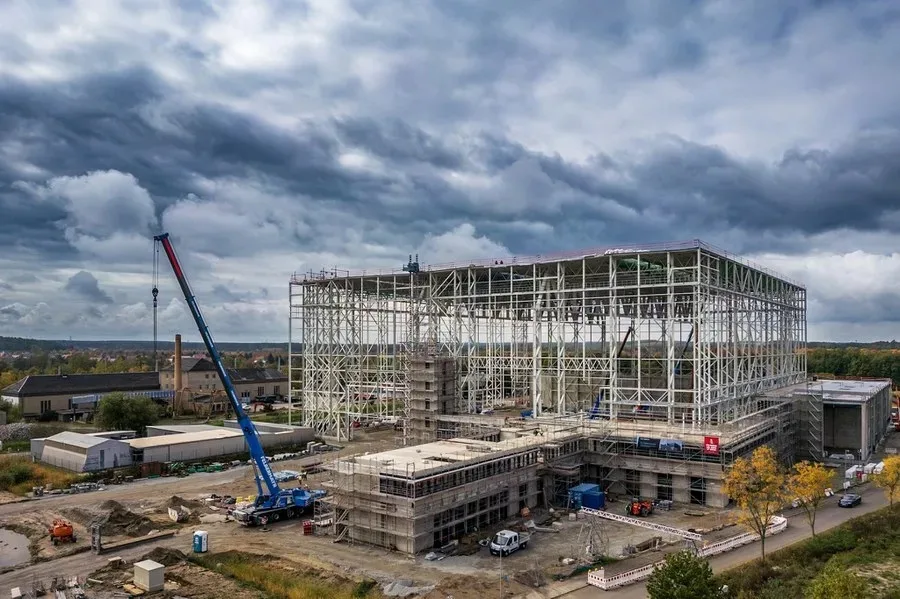
TU Dresden is currently building a new research and innovation centre called the Smart Mobility Lab (SML), which will feature a large-scale testing hall for connected and automated mobility on the ground and in the air. The university has now celebrated the topping-out ceremony for the facility, which is being constructed not in Dresden itself but at the Lausitz Research Campus in Hoyerswerda.
At the SML, researchers will develop new solutions for zero-emission, connected, automated and safe mobility of the future. These include projects in automated road traffic, autonomous flight systems and robotics-based agricultural applications. The key research initiatives are:
SivaS: Safety of connected and automated road traffic
TAFAS: Test centre for automated flight and autonomous systems
FarmingSwarm-Cobots: Automated agriculture with autonomous machinery and mixed field swarms
TERECULT: Productive landscapes through recultivation robotics
The project represents an investment of over €86 million, funded primarily by the German federal government and the state of Saxony as part of the region’s structural transformation programme. Construction work in the Hoyerswerda district of Schwarzkollm has been ongoing since the beginning of the year. Completion is scheduled for late 2026, with operations expected to start in January 2027.
Large-scale testing facility
The new driving and flight testing hall will stand 42 metres high and cover a total area of 100 x 100 metres—slightly larger than a professional football pitch. It will also feature extensive outdoor test areas (including a 75 x 75 metre driving and landing zone), advanced laboratories such as a climate chamber and electromagnetic testing hall, workshops, and flexible office and conference spaces.
Professor Ursula Staudinger, Rector of TU Dresden, highlighted the project’s strategic importance: “Today’s topping-out ceremony for the Smart Mobility Lab marks a major milestone on our journey to actively shape structural change as part of the TUD Lusatia Campus – towards a region that stands for cutting-edge research and technological innovation.”
According to the Rector, the SML will create a unique European research platform, bringing together academia, industry and society: “This is where pioneering technologies for the automated and connected mobility of the future will be developed, tested, and put into practice – from road traffic to autonomous flight. The SML exemplifies our understanding of a university for the 21st century, combining interdisciplinary top-class research with practical applications and benefits for our society.”
300 new jobs in the region
“The Smart Mobility Lab and the subsequent SCART Institute will create over 300 new jobs, expand the infrastructure of the city, and connect us more closely than ever before with TU Dresden,” Torsten Ruban-Zeh, Mayor of Hoyerswerda, added. “Moreover, the community will consolidate its international character and diversity.”
The Smart Mobility Lab is one of the flagship projects driving structural transformation in the former lignite mining region of Lusatia, a key area in Germany’s energy transition.
The facility will operate under an innovative, largely self-sufficient energy concept, designed to supply over 75 per cent of its energy needs autonomously. It will integrate a large photovoltaic system, geothermal energy, a hydrogen electrolyser, and a combined heat and power unit with battery and solid-state storage systems. This advanced energy management system will ensure a stable power supply even during winter or at night. In addition, EV charging stations on site will be powered directly by the lab’s renewable energy systems.
tu-dresden.de

